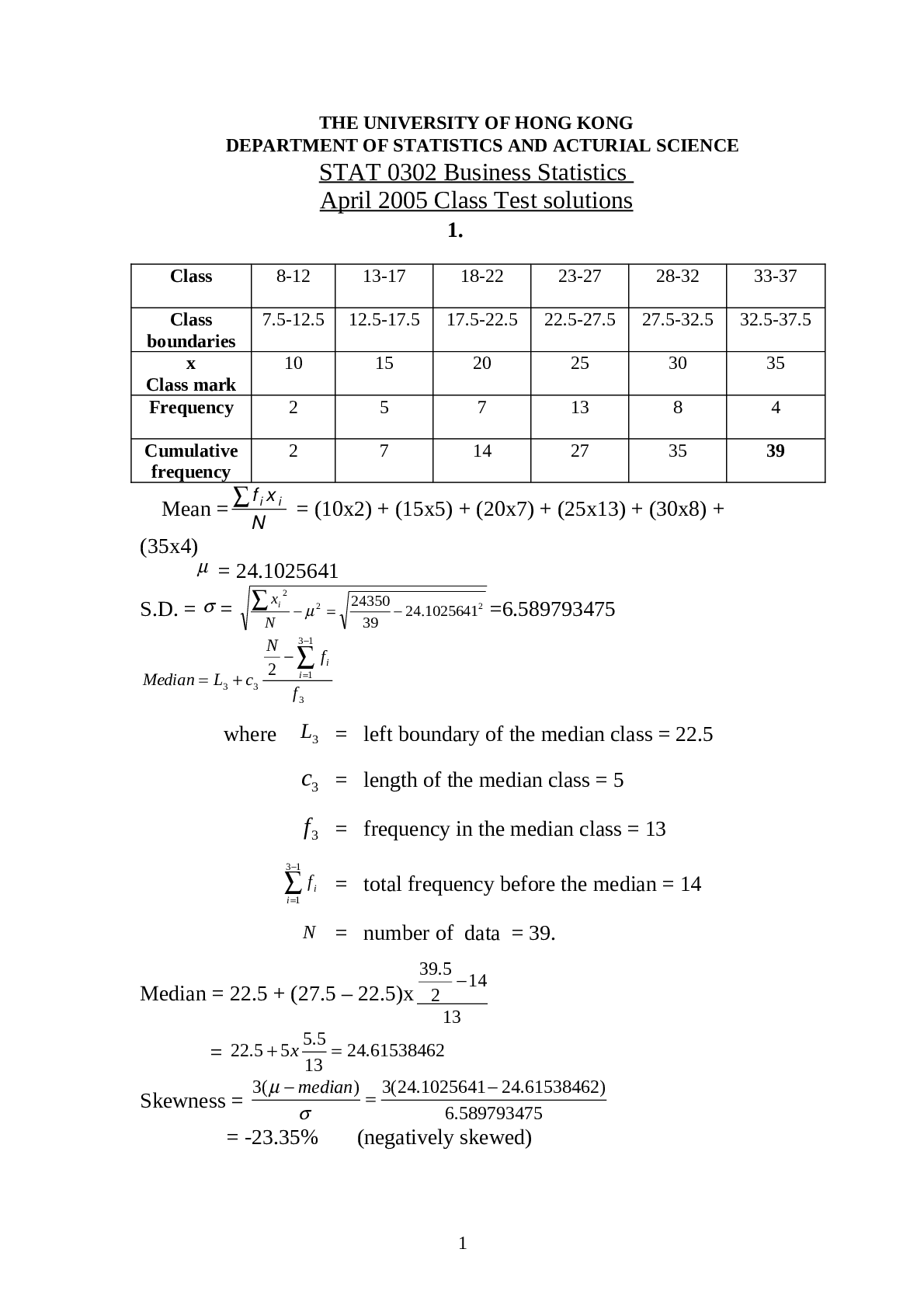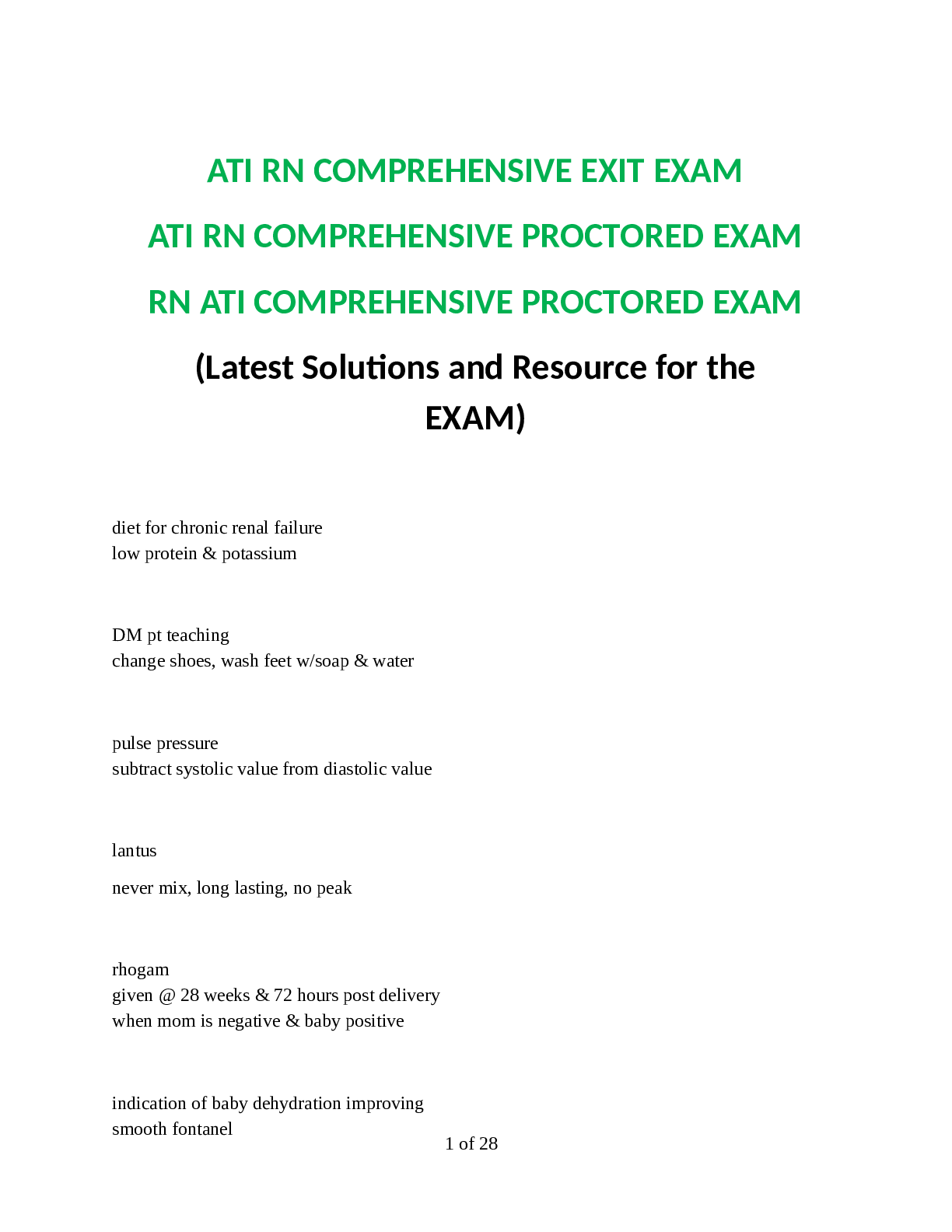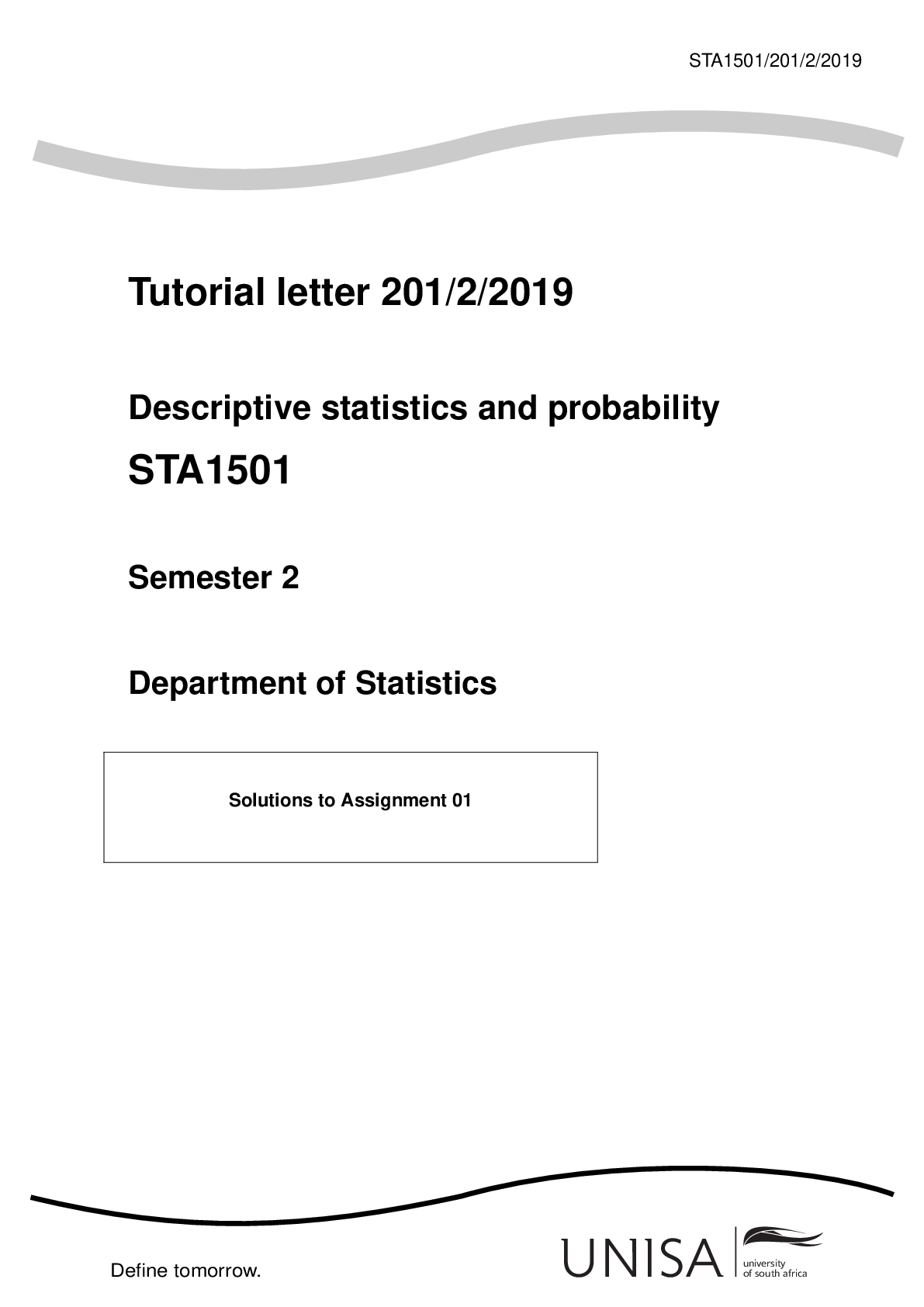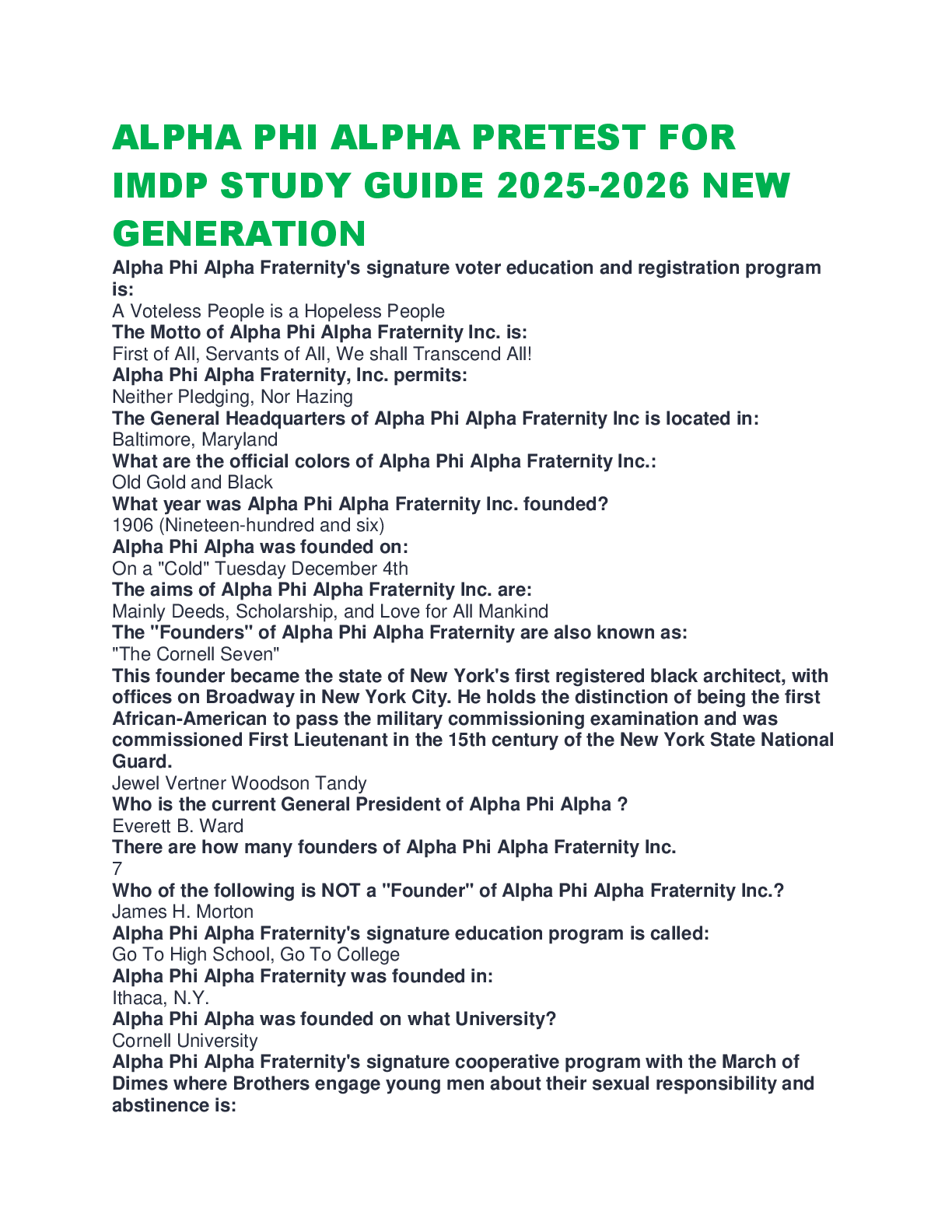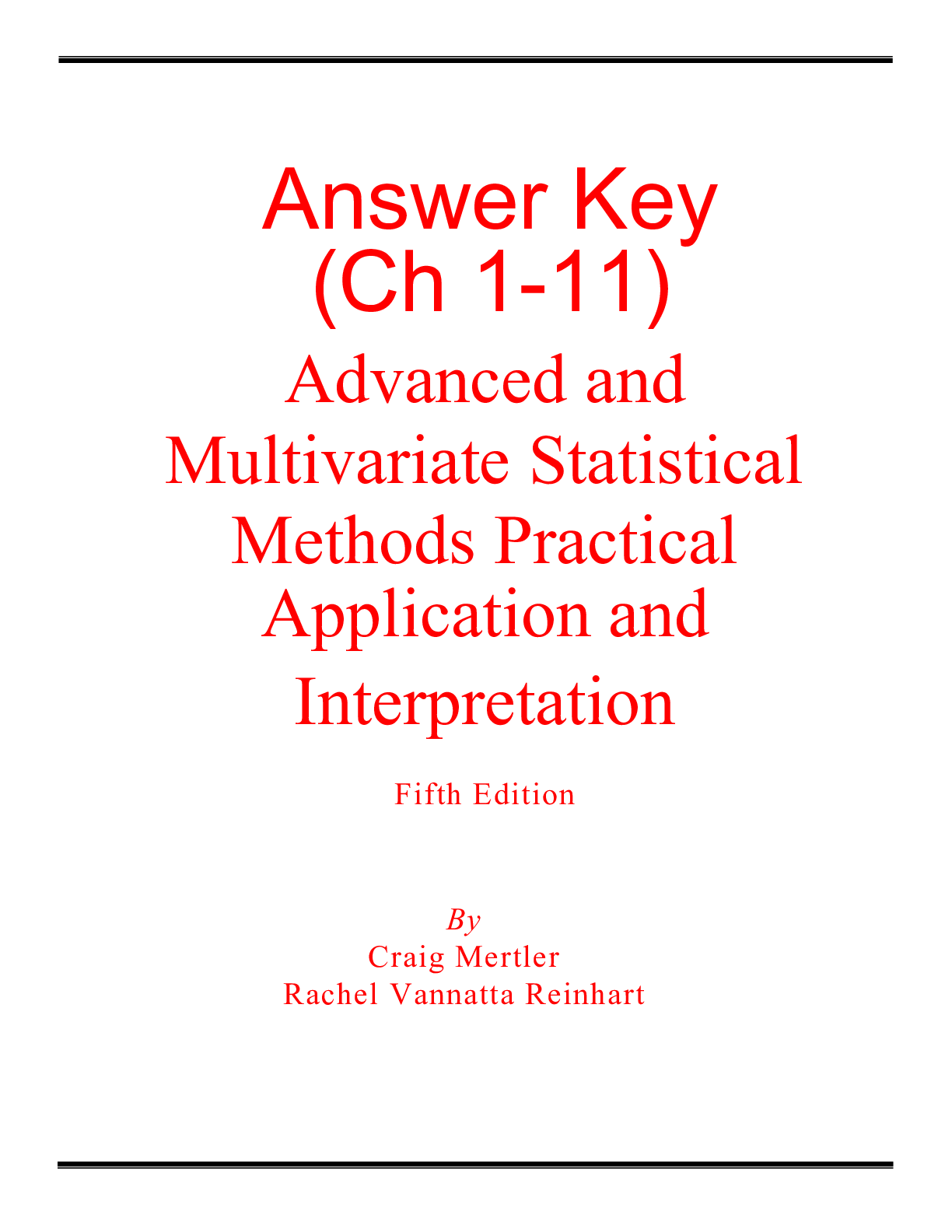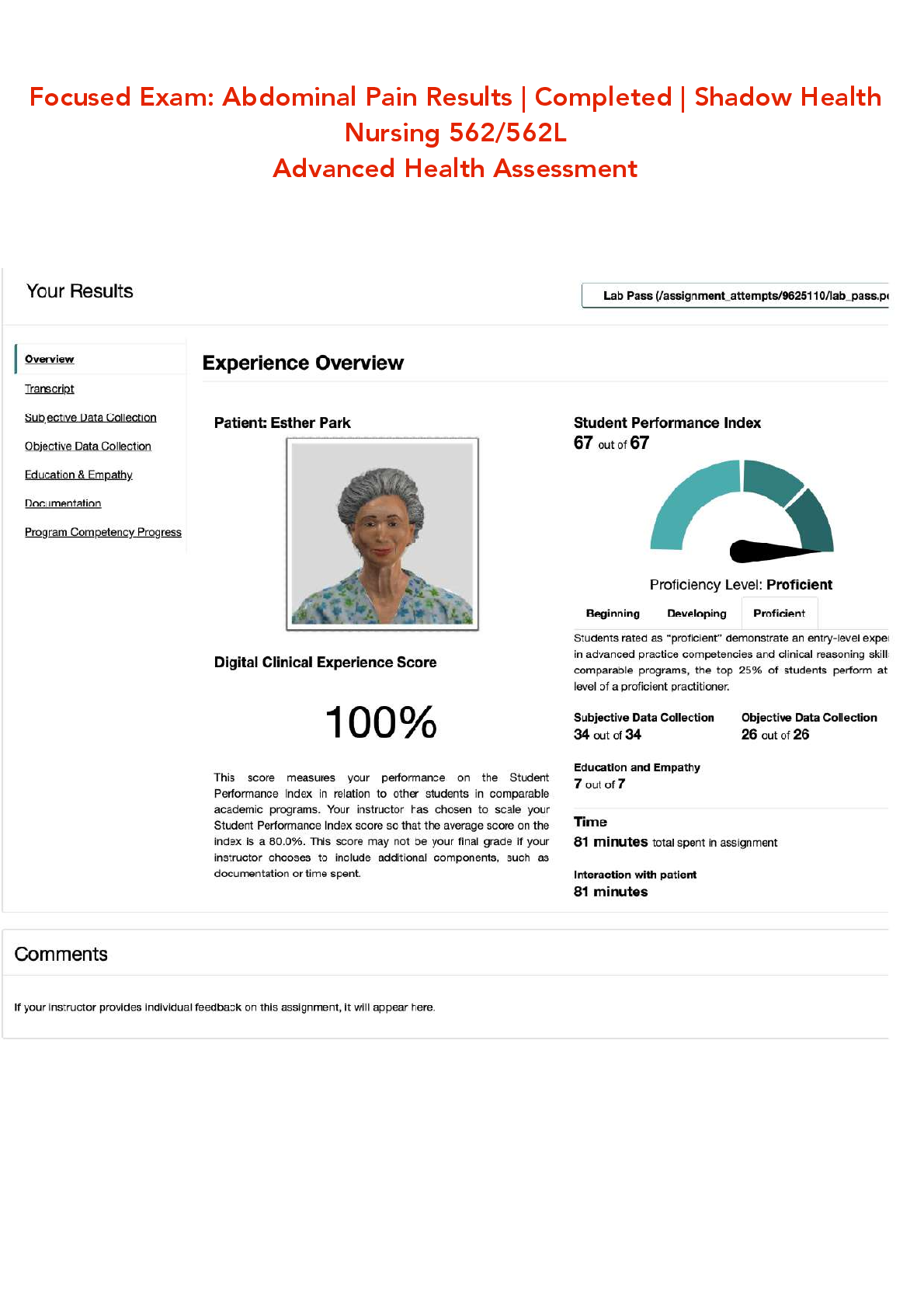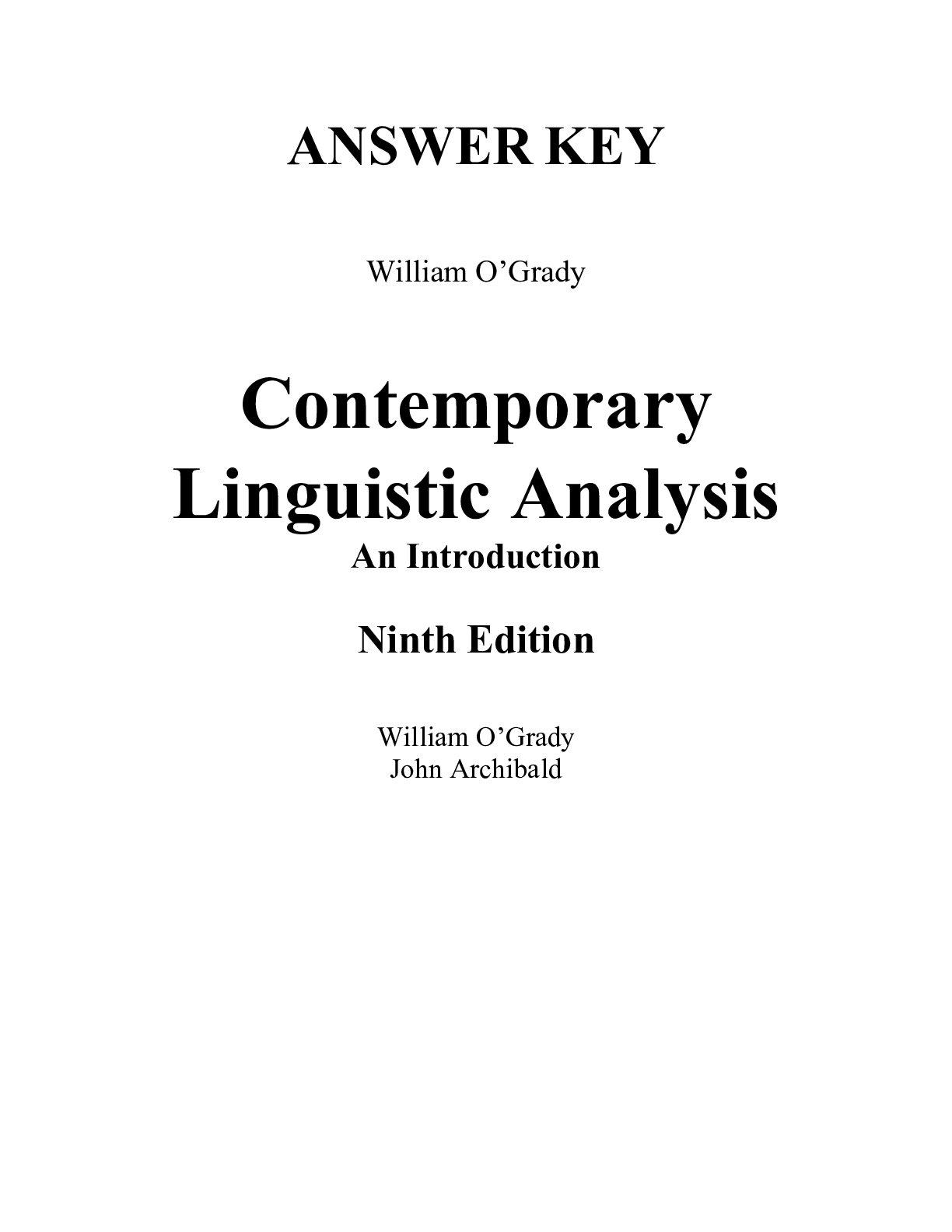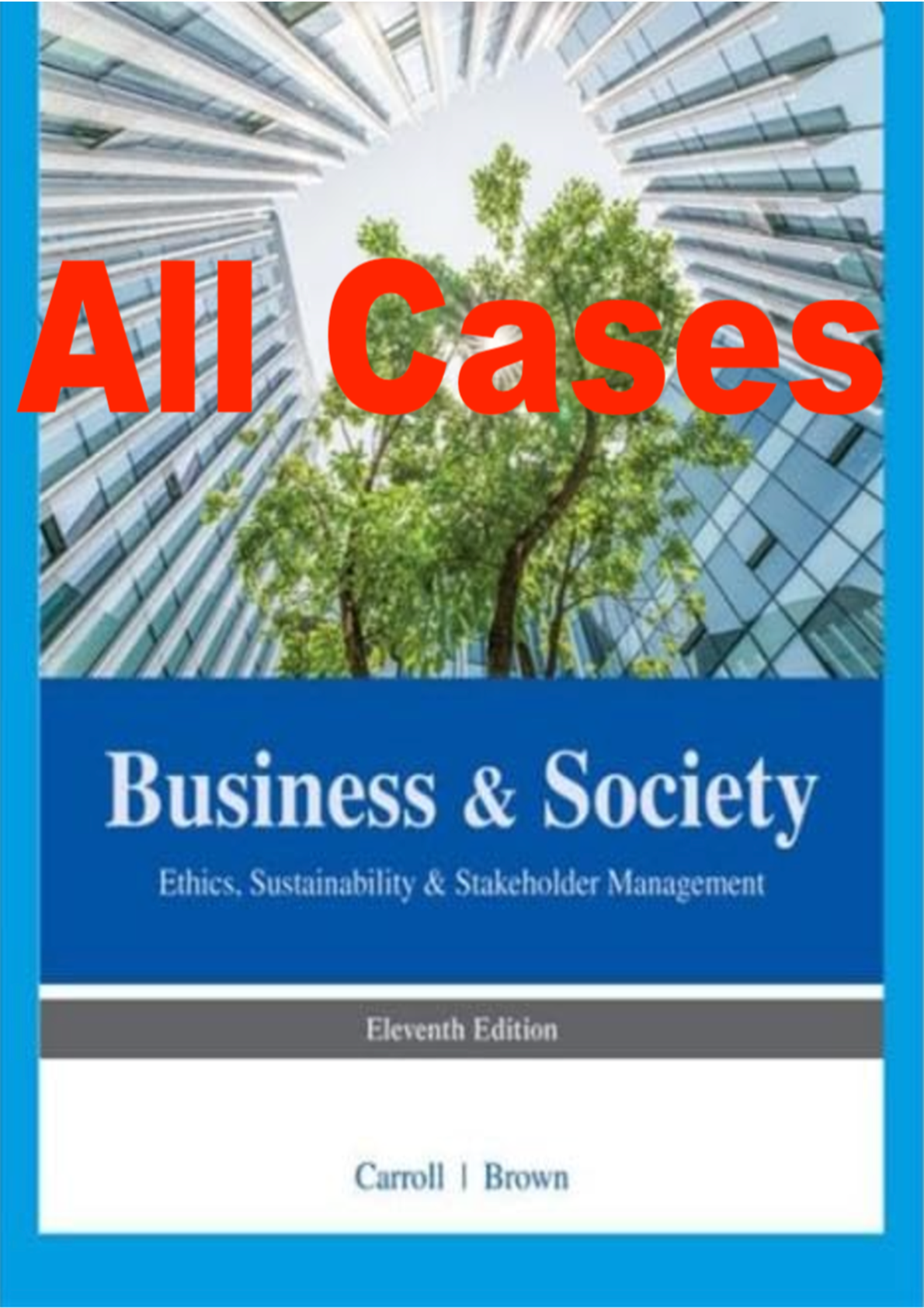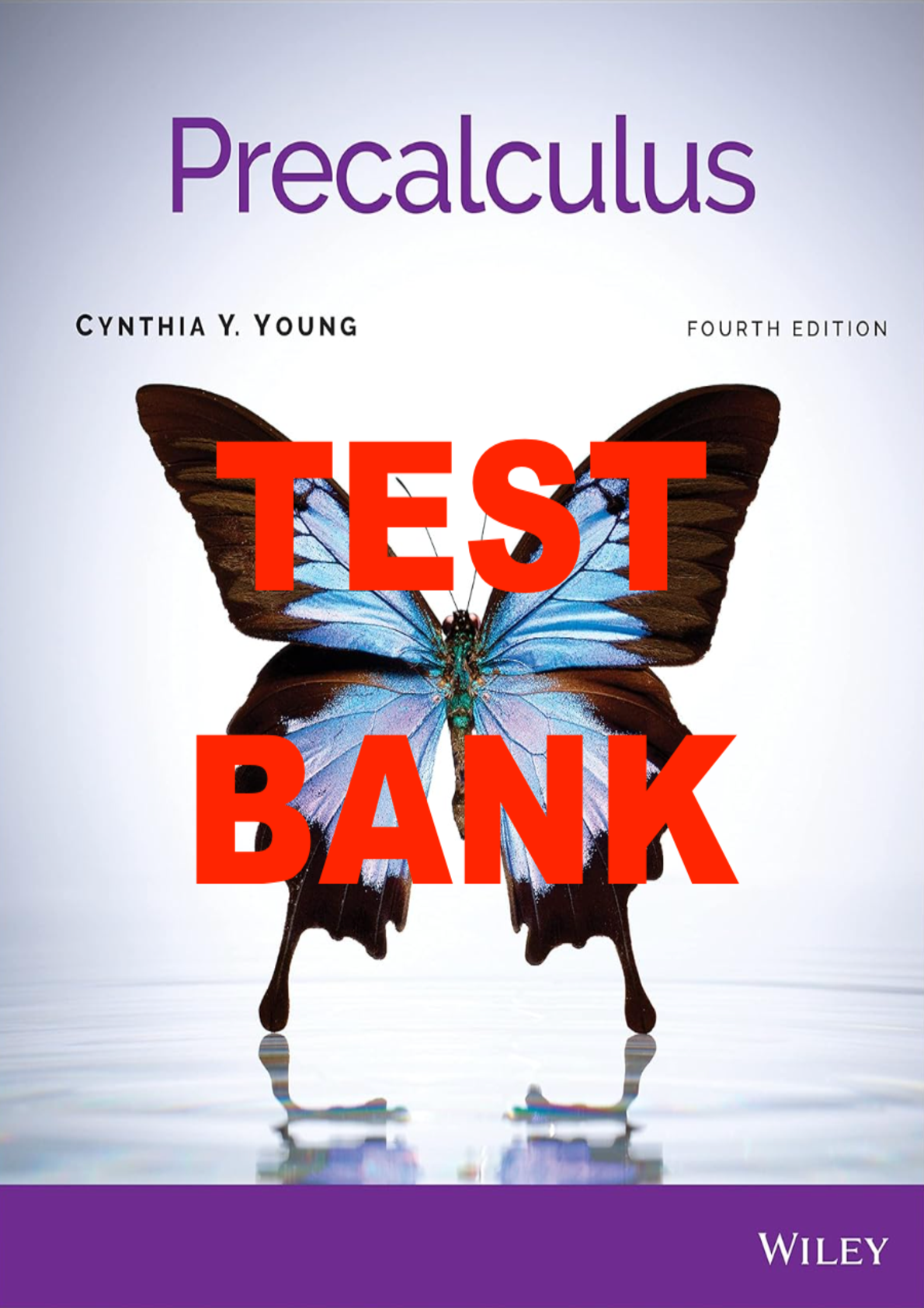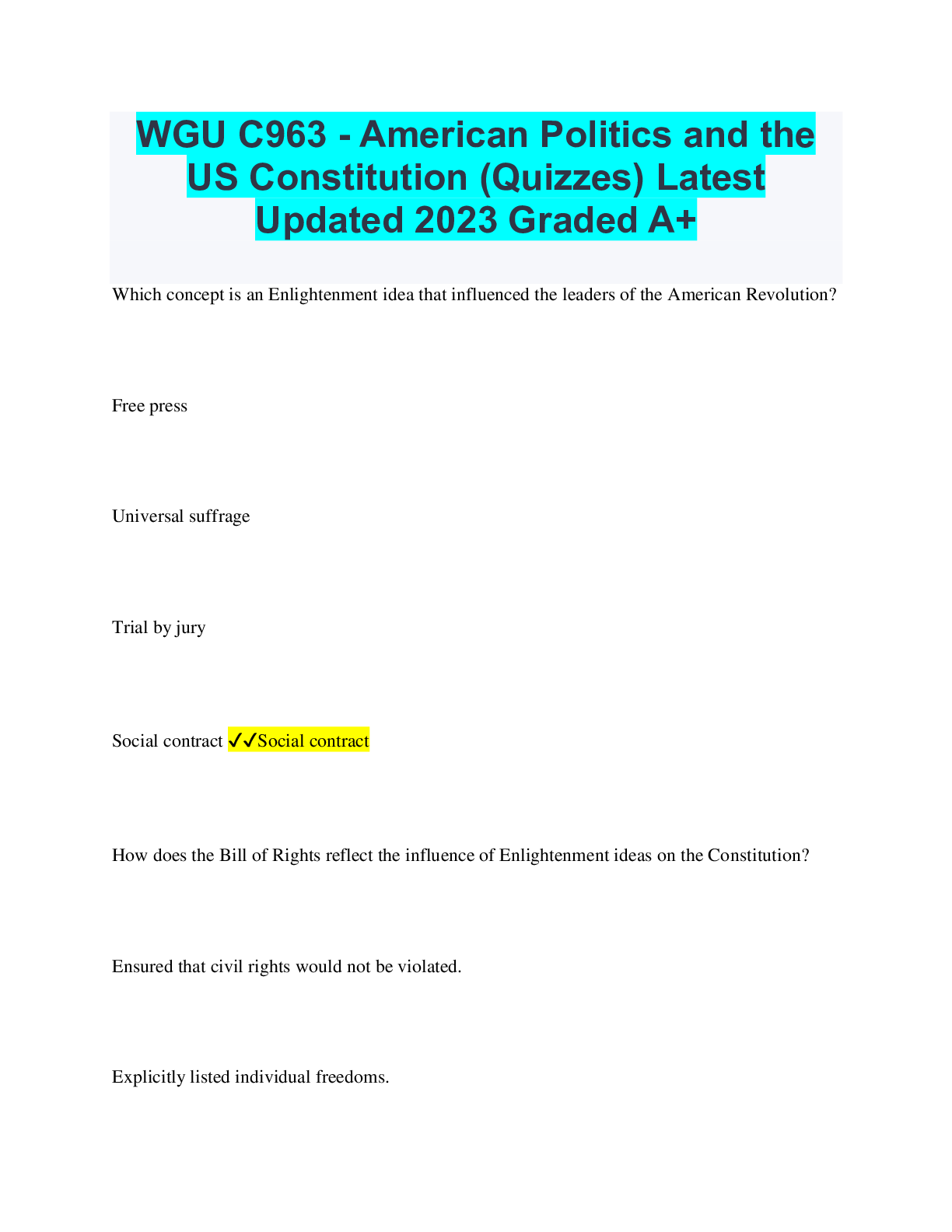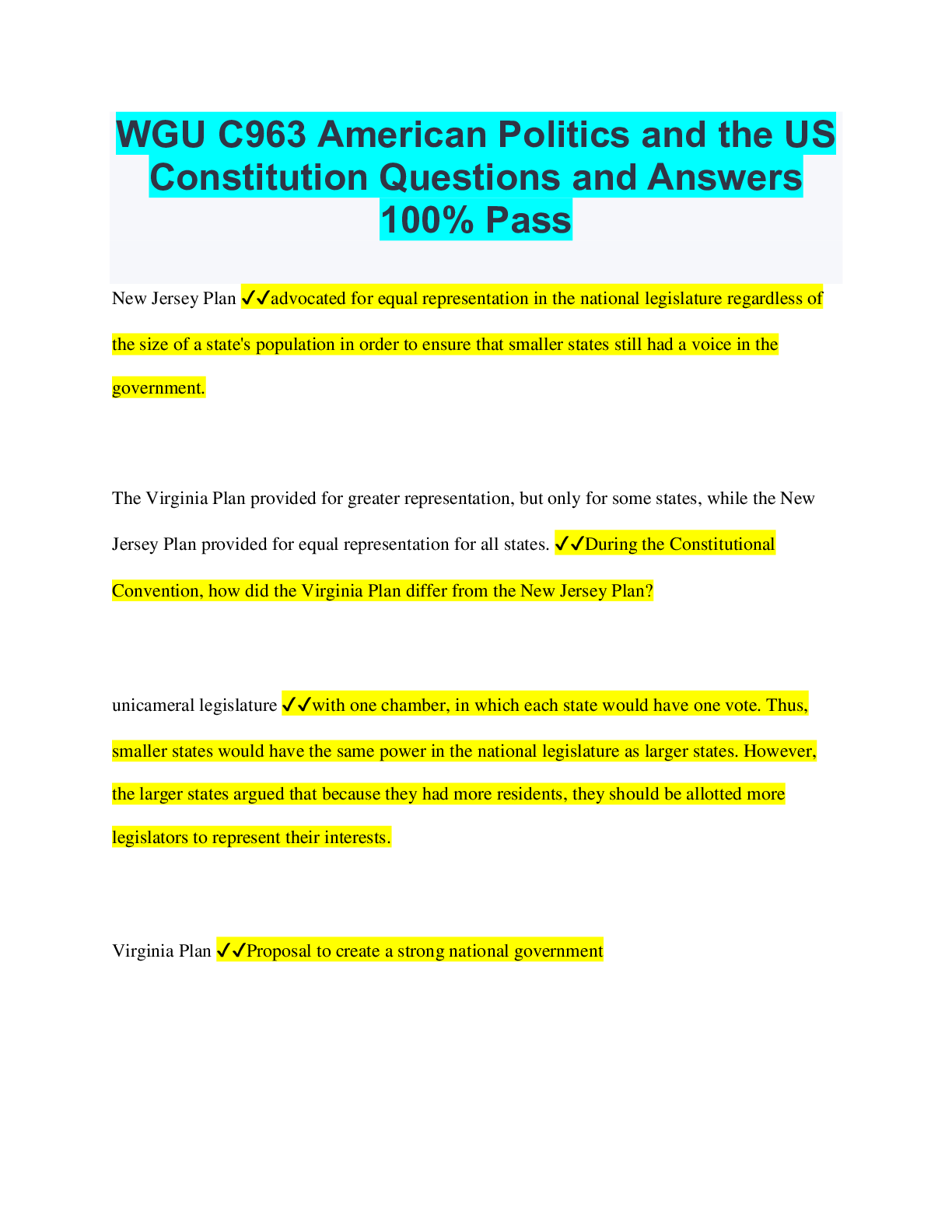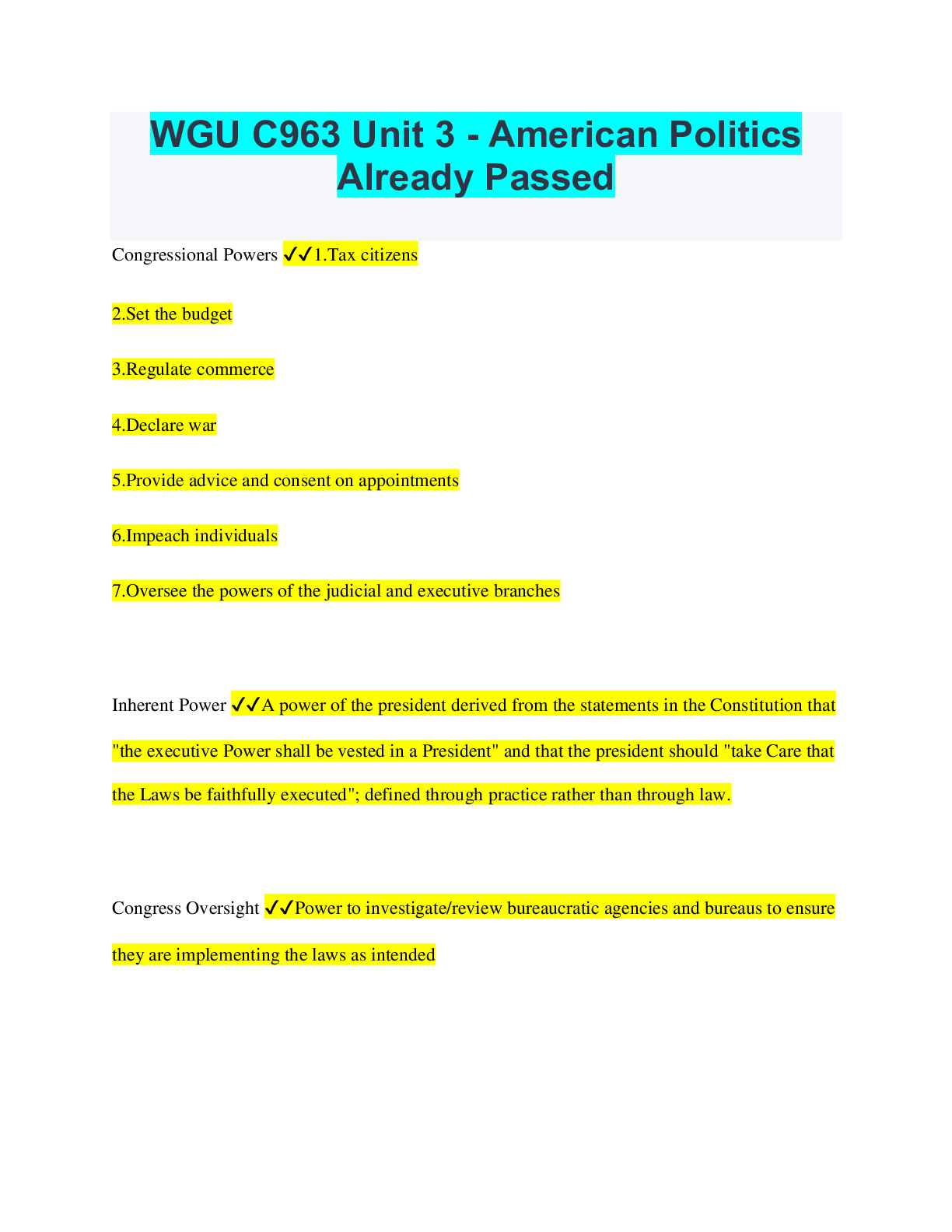AFRICAN CUSTOMARY LAW > ANSWERS AND COMMENTARIES > AFRICAN CUSTOMARY LAW (IND2601) TUTORIAL LETTER 201/1/2011 | Download for quality grades | (All)
AFRICAN CUSTOMARY LAW (IND2601) TUTORIAL LETTER 201/1/2011 | Download for quality grades |
Document Content and Description Below
COLLEGE OF LAW DEPARTMENT OF PUBLIC, CONSTITUTIONAL, AND INTERNATIONAL LAW AFRICAN CUSTOMARY LAW (IND2601) TUTORIAL LETTER 201/1/2011 CONTENTS 1 COMMENTARY ON THE MULTIPLE-CHOICE ASSIGNMENT ... 01/2011 2 COMMENTARY ON THE WRITTEN ASSIGNMENT 02/2011 3 COMMENTARY ON THE SELF-EVALUATION ASSIGNMENT 03/2011 4 ADDITIONAL SELF-EVALUATION QUESTIONS 5 \HOW TO APPROACH THE EXAMINATION 2 IND2601/201/1 THIS TUTORIAL LETTER CONTAINS IMPORTANT INFORMATION. PLEASE STUDY IT CAREFULLY. Dear Student This is the last tutorial letter for the semester. The main aim of the tutorial letter is to give you feedback on your assignments and a few guidelines on the forthcoming examination. We trust that you will find this tutorial letter useful for your studies and in your preparation for the examination. 1 COMMENTARY ON THE MULTIPLE-CHOICE ASSIGNMENT 01/2011 1. False: General property belongs to the household as a whole, and controlled by the family head. Each member of the household shares in the property according to his status. (1) 2. True: The unwritten nature of African customary law meant that the law was transmitted orally from one generation to the next. (1) 3. False: An illegitimate son may, under certain circumstances, succeed his father, as an heir (study unit 3, lecture 2, paragraph 2.2.2.3). (1) 4. True: Judgment by default was unknown in African customary law court procedures. (1) 5. True: If a party appeals to a magistrate's court in terms of the provisions of section 12(4) of the Black Administration Act 38 of 1927, the said court may confirm, alter or set aside the judgment after hearing such evidence as may be tendered by the parties to the dispute, or as may be deemed desirable by the court. (1) 6. True: Unspecialised legal systems follow a more concrete, real and visible approach than that of specialised legal systems, which tend to be more abstract in nature. (1) 7. True: The principles of public policy and natural justice are not synonymous with the fundamental rights contained in the Bill of Rights. (1) 8. False: Succession in customary law is not concerned with the division of a deceased's assets among his or her heirs, but as to who takes the place of the deceased and gains control over the property and the people over which the deceased had control. (1) 3 IND2601/201/1 9. False: The Recognition of Customary Marriages Act 120 of 1998 makes provision for registration of all marriages entered into in South Africa. (1) 10. True: Customary law also provides for forfeiture of benefits in cases of divorce. (1) 11. False: The principles of customary law and fundamental rights often conflict and the Constitution alone does not provide a solution to such a conflict. Other means outside the Constitution should also be looked at . (1) 12. False: Customary marriage refers to a marriage concluded in terms of the Customary Marriages Act 120 of 1998 according to customary law. (1) 13. True: House property refers to that property which belongs to each separate house. (1) 14. False: The law of immaterial property consists of the rules concerning rights over immaterial property, such as patents and copyright. As far as we know, this legal concept is unknown in South African customary law. (1) 15. True: Hearsay evidence is admissible, and is considered together with other evidence. Hearsay can also serve as a guideline in the questioning of the parties and their witnesses and is therefore admissible. However, a case relying mainly on hearsay has little chance of success. (1) 16. False: The idea of groups as parties to a contract is well-known in an unspecialised legal system, and the parties are mostly agnatic groups, rather than the individuals. (1) 17. False: One of the elements of a crime in African customary law is that the act must be unlawful. (1) 18. True: The Ukungena custom is applied where the husband dies without a son by the tribal wife to succeed him. (1) 19. False: One of the procedures that the Premier of a province has to engage in to recognise a senior traditional leader is to inform the royal family of the community of the traditional leader of his choice. (1) 4 IND2601/201/1 20. True: One of the grounds for justification in African customary criminal law is based on performance of an institutional action. (1) 21. False: One of the examples of a customary law determination of the traditional leader is that he can institute or revoke valid legal determination only as long as the administrative power is exercised in accordance with valid legal rules, and valid only in the area of the traditional authority and with regard to the residents in that territory. (1) 22. False: The death penalty was a known form of punishment in traditional customary law. (1) 23. True: According to African customary law, the crime of rape occurs when a man uses violence to force a woman not married to him to have sex with him. (1) 24. False: Membership of a traditional council must comprise other members of the traditional community who are democratically elected for a term of five years and who must constitute 40% of the members of the traditional council. (1) 25. True: Any parliamentary Bill pertaining to customary law or customs of traditional communities must be referred to the National House of Traditional Leaders for its comments. (1) [25] PLEASE NOTE: YOU SHOULD NOT REGARD THE COMMENTARY ON THE ASSIGNMENT QUESTIONS BELOW AS MODEL ANSWERS. 2 WRITTEN ASSIGNMENT 02/2011 [Show More]
Last updated: 2 years ago
Preview 1 out of 21 pages
.png)
Buy this document to get the full access instantly
Instant Download Access after purchase
Buy NowInstant download
We Accept:

Reviews( 0 )
$10.00
Can't find what you want? Try our AI powered Search
Document information
Connected school, study & course
About the document
Uploaded On
Mar 14, 2023
Number of pages
21
Written in
All
Additional information
This document has been written for:
Uploaded
Mar 14, 2023
Downloads
0
Views
132



